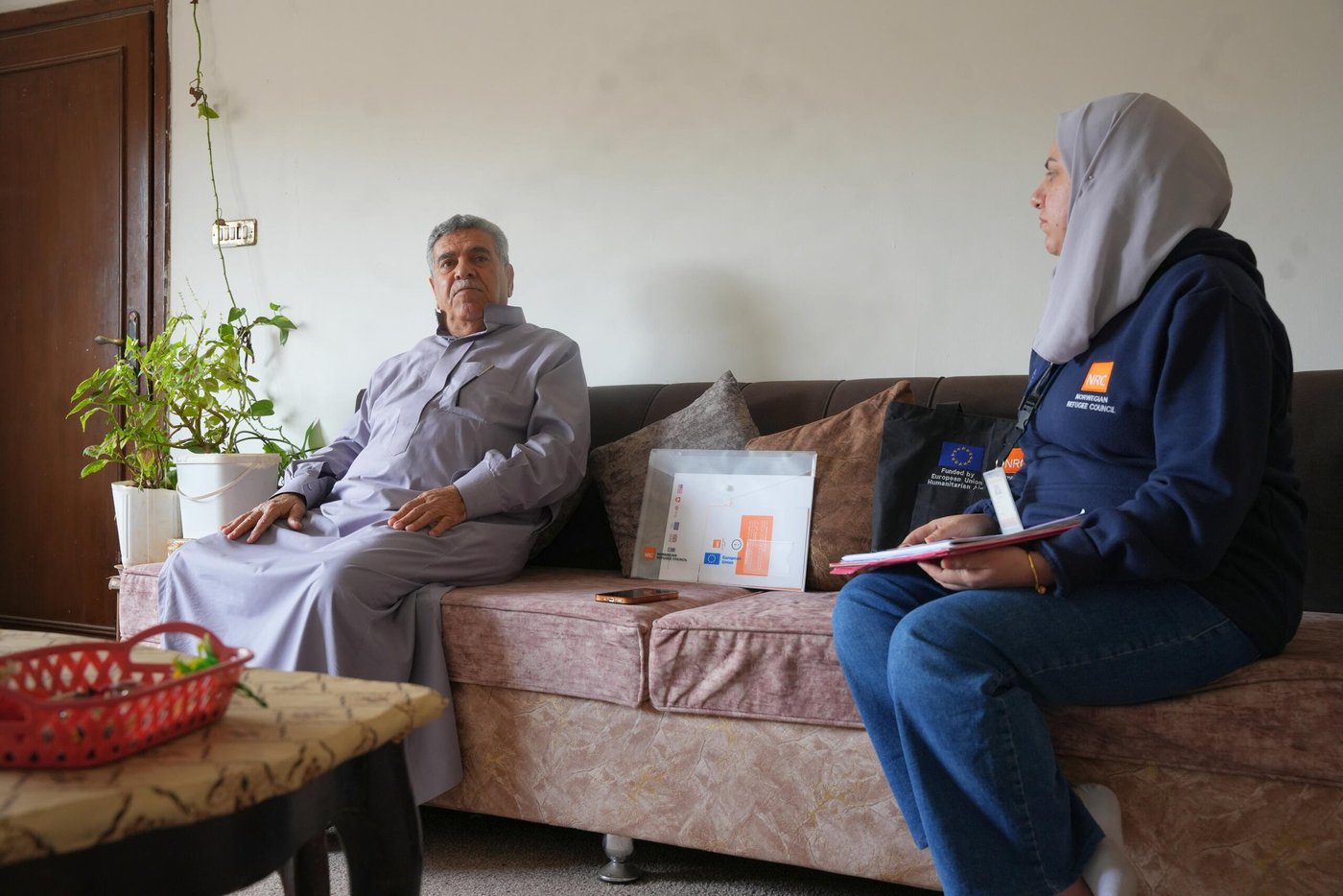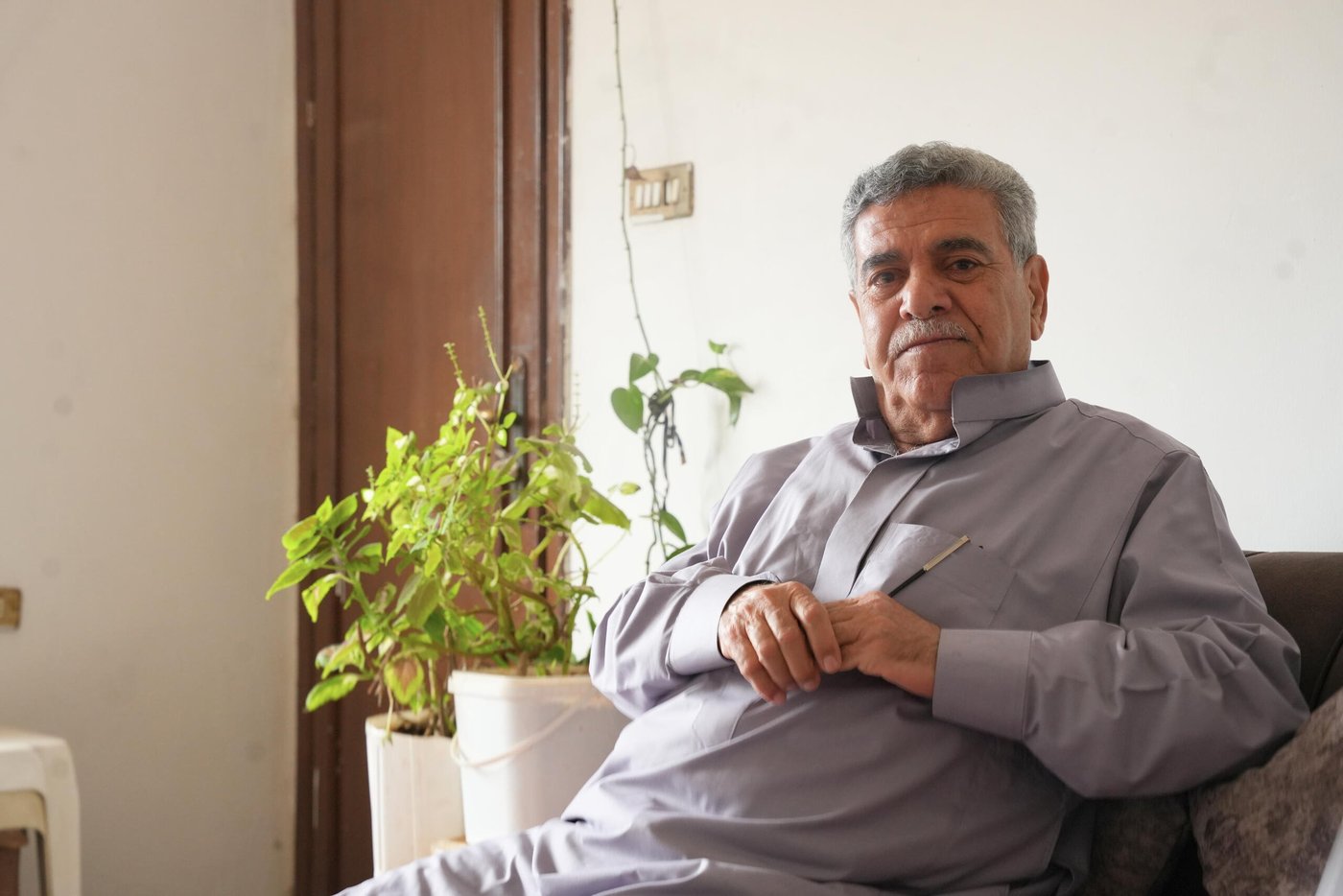Originally from Kherbet Ghazaleh in Daraa, southern Syria, Khalil arrived in Jordan in January 2013 after six agonising months of separation from his family. “My wife and children fled to Irbid in 2012,” he recalls. “I stayed behind to search for my son, who had been forcibly disappeared. I couldn’t leave without knowing what happened to him.”
When war came to Kherbet Ghazaleh
Before the war, Khalil was a teacher and school principal on the verge of retirement. He lived in a house he built on land inherited from his father. “We didn’t have much, but we were content,” he says. “Our family gathered daily. My brothers, cousins - we were all there.”
That life crumbled when the war broke out. “I was arrested with my son after anti-government slogans appeared on a graveyard wall opposite our house. I had no idea who wrote them. I was detained for three weeks. My son remained for nine months.”
Shortly after, Syrian government forces launched air strikes on Kherbet Ghazaleh. “They emptied the village and burned every home,” Khalil says, his voice breaking. His home - a duplex with four rooms and a large guest area - was bombed, burned and looted. “They destroyed everything,” he adds. “Even the electrical switches were taken.”
Even more painful was the loss of his three brothers. One died under torture in detention. Another lost two sons and died of grief. The third made it to Jordan but passed away soon after. “I lost my brothers, my cousins, my community,” continues Khalil. “But at least my children are safe.”
Starting over in Jordan
Khalil eventually reunited with his family in Irbid, where they began their life in displacement.
Though safe, the early days were difficult. “We struggled, but eventually we adapted. Jordanians treated us kindly. Their traditions were close to ours. I didn’t feel like a stranger, except when I missed my relatives and the land.”
Khalil and his wife now live with their two youngest children, a son and a daughter. His youngest son, 27, remains unemployed despite holding engineering certificates - the cost of a work permit is simply too high, and non-Jordanians are not allowed to work as engineers in Jordan. “He once thought of migrating illegally by sea,” Khalil says, shaking his head. “I begged him not to risk his life.”
Their other children, now scattered across the United States and Europe, help pay the rent. But the third-floor apartment is proving challenging for Khalil and his wife. “Our knees ache, but we can’t afford a ground-floor place.”

Reclaiming what remains
Despite all that was taken from him, Khalil held onto one thing: his land in Syria. He had long ago lost the green tabou (land deed), but his desire to preserve his legal rights never waned.
With guidance from the Norwegian Refugee Council’s (NRC) legal aid team, Khalil attended a session on housing, land, and property rights in Syria. Encouraged, he began the process to replace the lost deed. With help from NRC, Khalil issued a Power of Attorney (PoA) to his sister in Syria through the Syrian Embassy in Amman.
Despite some hurdles, after months of persistence, the new tabou was issued in late 2024. “I don’t want to sell it,” Khalil says. “I just wanted to prove it’s still mine. My house may be in ruins, but that land is part of who I am.”
Waiting for the day he can rebuild
Khalil says he will return to Syria once he has enough money to rebuild his home and live there in peace and dignity. “Now that my land ownership is secure, I look forward to the day I can go back,” he says.
“I worked two jobs to educate my nine children. Some in Syria, some in Jordan. They all finished college, Alhamdullilah [Thank God],” he says proudly. “Just when I was about to rest, they displaced us. But I don’t regret it.”
What Khalil wants now is simple: stability for his family and dignity in exile until he can return. “I lost everything but I won my children. That is enough.”
Sign up to our newsletter to read more stories from around the world.


